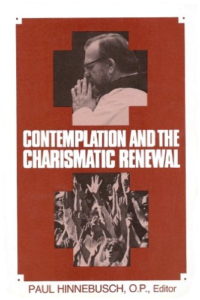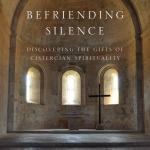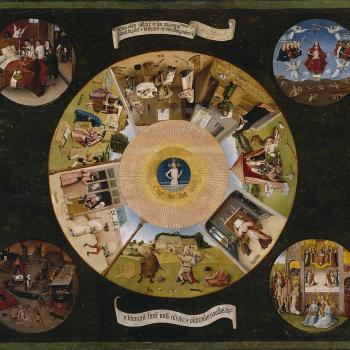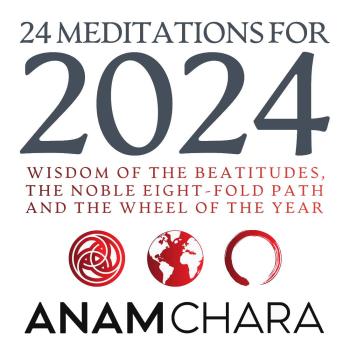 “Do Gifts of the Spirit, especially those like tongues, have any connection with mysticism? Historically, theologically, experientially, in connection with the Divine… If so, in what way, and if not, why not?”
“Do Gifts of the Spirit, especially those like tongues, have any connection with mysticism? Historically, theologically, experientially, in connection with the Divine… If so, in what way, and if not, why not?”
A few months back, I asked folks on Facebook if they had any questions they would like me to address on my blog. Here is what a person named Anna wrote in reply:
Well – this was a question I asked when I was on my silent retreat in a very small Christian ashram in South India last year (I’m back there in a couple of days). I spent most of my retreat in silent meditation, prayer, yoga, reading Christian and other mystics – and walking meditations. After a while of walking and repeating my mantra as a centring prayer, I found myself, totally unconsciously, gradually starting to pray in tongues… my question is — do Gifts of the Spirit, especially those like tongues, have any connection with mysticism? (historically, theologically, experientially, connection with the Divine) If so, in what way, and if not, why not? My spiritual journey over the last few years has taken me into some very unexpected places, with a much deeper awareness of the Cosmic Christ, and I’m wanting to explore those places, while still testing the truth of them. I’d really appreciate some of your thoughts. In fact that also leads to my time last Sunday, when I was nowhere near a church in India and happened to be in a remote area with a Hindu temple within a cave. I found it to be a prayerful place and spent some of my Sunday morning praying there – but I know that some of my friends would be horrified if I told them!
Anna, first of all, my apologies for taking almost four months to reply! I’ve had a busy schedule, and your question is so rich that I wanted to make sure I had time to give it the response it deserves.
First of all, you probably already know this, but I’ll say it anyway: this blog is a safe space for both intentional interfaith dialogue/interspirituality, and deep exploration of the Christian mysteries. While not all contemplatives are interfaith (nor all interfaith folks necessarily contemplative), I am convinced that interspirituality and diving deep within one’s “home” faith tradition are complementary spiritual practices that can profoundly support each other.
In other words, if you want to give yourself totally to Christ and Christ’s mysteries, and you want to drink the nourishing waters of compassion and joy found in other wisdom traditions, it is possible to do both, and find that each of these spiritual intentions is a blessing to the other.
And (alas) I know all about friends being horrified. I have friends who are horrified at my interfaith exploration, and friends that are horrified at my devotion to Christ. I see it as part of my spiritual practice to be open and authentic with my friends, and to respond to their fear and disapproval with compassion, love and forgiveness. Some days I’m better at it than others, but I have a very strong sense of that as part of my vocation as a follower of Christ.
But let’s look at your question.
“Do Gifts of the Spirit, especially those like tongues, have any connection with mysticism?
The short answer is “Of course!” Gifts of the Spirit have everything to do with mysticism. Mysticism is to “mystery” what spirituality is to the Holy Spirit. For Christians, spirituality means receiving, acknowledging, and seeking to live by, the presence of the in-dwelling Spirit in our hearts and lives. Likewise, Christian mysticism is the invitation for Christians to embrace, and embody, “the mystery of Christ in you” (Colossians 1:27) — a mystery is something hidden, so that the sacraments are “mysteries” in which God’s grace is “hidden” within ceremonies involving water, or bread and wine; likewise, the mystery of Christ is the recognition that Christ is truly present in our hearts, even if “hidden” below the threshold of our conscious awareness. We know this is true by virtue of the witness of scripture: we are created in the image and likeness of God (Genesis 1:26); we are the body of Christ (I Corinthians 12:27); we have the mind of Christ (I Corinthians 2:16).
At the risk of oversimplifying, I think we could even say that the mystical life tends toward contemplative prayer: the prayer of waiting, of resting, of deep attentive silence, whereas the spiritual (Spirit-filled) life tends toward charismatic prayer: prayer that is joyous, effusive, devotional, prophetic, and even ecstatic (e.g., tongues). Let me say it again: this is an oversimplification. I don’t think there is a hard-and-fast division between contemplative and charismatic forms of prayer or spirituality. Just as the Trinitarian nature of God means that each person of the Trinity dances together and co-inheres with one another, so too the different styles or dimensions of prayer/spirituality “dance” and “co-inhere” with each other. Differences between charismatic and contemplative expressions of spirituality are differences of degree, not of kind.
It is perfectly possible for a devout, practicing Christian to be contemplative without any experience of charismatic gifts. And it’s just as possible to be a charismatic Christian without any sense of being called into the deep silence of contemplation. But in my experience, many people drink from both wells. Maybe at different seasons of their lives, depending on their needs and the specifics of God’s call in their life. But it’s also possible that a Christian enjoy both the restful silence of contemplation and the exuberant joyfulness of charismatic worship as complementary dimensions of one faith in the Triune God.
You asked about historical expressions of charismatic mysticism. This post is already getting long-ish, so I’ll just mention two names for you to explore further: Symeon the New Theologian (an 11th century Eastern Orthodox mystic) and St. Francis of Assisi — both of whom are renowned as mystics, but whose life story shows evidence that they enjoyed a charismatic style of prayer.
Experientially, I think it varies from person to person as I have suggested. Anna, your experience — of glossolalia emerging out of centering prayer — is not the same for everyone, but I’m sure it’s not unique to you either. Off the top of my head I don’t remember that happening in my life, but it may have. Praying in tongues is not a frequent part of my spirituality, but it does show up from time to time and when it does it’s lovely. It comes and it goes. Is that normal? Who knows what is “normal” in the vast plenitude of God’s grace? But it seems normal enough for me.
I’m not sure that I’m qualified to make a theological statement about the relationship between contemplation and charismatic prayer, beyond what I’ve already said. As for the connection with the Divine — well, both mystical and charismatic spirituality emerge out of God’s presence in our lives, so I think “connection with the Divine” is at the heart of both.

One more thought. A while back, Paulist Press published a book called Contemplation and the Charismatic Renewal which looked at pastoral issues involving the encounter between silent and ecstatic forms of spirituality. I haven’t read it, but it looks interesting. Follow the link in the title if you’d like to order a used copy (it’s out of print now, but used copies are inexpensive).
I hope this is helpful. Thanks, again, for such a rich question!
Is charismatic prayer part of your spiritual life? If so, how does it integrate with your contemplative practice? Please share your experience, either as a comment on my website or on social media. Thank you!
Enjoy reading this blog?
Click here to become a patron.


















